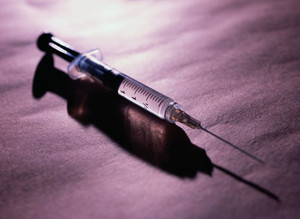A US Federal Trade Commission (FTC) report has found that authorised generics may reduce generics competition. The report also shows that some originator companies may have used agreements not to launch an authorised generic drug as a way to compensate would-be generic competitors for delaying entry into the market.
The report by the FTC on authorised generic drugs concludes that when pharmaceutical companies introduce an authorised generic version of their brand-name drug, it can reduce both retail and wholesale drug prices. The report also found that authorised generics have a substantial effect on the revenues of competing generics firms. Over the longer term, by lowering expected profits for generics competitors, the introduction of an authorised generic drug could affect a generic drug company’s decision to challenge patents on branded drug products with low sales. However, the report concludes that in spite of this, patent challenges by generics competitors remain robust.
The FTC has for years opposed pay-to-delay patent litigation settlements, in which a brand-name drug manufacturer compensates its generics competitor to delay entering the market. With this report, the agency has found that promises by an originator firm not to market competing authorised generics are frequently present in pharmaceutical patent settlements.
Deals in which brand-name companies paid generics companies challenging patents to delay the introduction of lower-cost medicines increased by more than 60% between 2009 and 2010 and according to FTC Chairman Jon Leibowitz these deals ‘are costing consumers and taxpayers US$3.5 billion a year in higher drug prices.’ A previous FTC report also found that patent settlements that include a payment delay generics entry by 17 months longer on average than those that do not include a payment [1].
The US Generic Pharmaceutical Association (GPhA), however, disagree that these deals delay generics entry arguing that ‘patent settlements have never prevented competition beyond a patent’s expiration, and in many cases have resulted in making lower-cost generics available months and even years before patents have expired. In fact, of the 23 new generic drug launches expected in 2011, settlements made 17 of these possible where the generics will launch prior to a patent’s expiration.’
According to an analysis by RBC Capital Markets, over the past decade, consumers gained access to lower cost generic drugs prior to expiry of patents on the originator in 76% of the 370 patent litigation cases.
GPhA Executive Director, Mr Bob Billings, said in response to the FTC statement that ‘by continuing to push its misguided policy to ban pro-consumer patent litigation settlements, the FTC is gambling with consumers’ savings.’
Editor’s comment
The jury is still out on whether these deals delay or not? There are conflicting reports out there. One thing most people can agree on though is that affordable medicines should be available as soon as possible, but what is the best way to make this happen?
Please feel free to share your thoughts via email to editorial@gabionline.net or in the comments section below. What are your views on the continuing pay-to-delay debate? Should legislation be introduced banning these deals? Or do these deals result in generics being available sooner than would otherwise be possible?
Related articles
More debate over ‘pay-to-delay’ legislation in the US
Battle over ‘pay-for-delay’ deals continues
US bill to curb generic ‘pay-for-delay’ deals
Reference
1. GaBI Online - Generics and Biosimilars Initiative. Pay-to-delay deals up by 60% in US [www.gabionline.net]. Mol, Belgium: Pro Pharma Communications International; [cited 2011 September 30]. Available from: www.gabionline.net/Pharma-News/Pay-to-delay-deals-up-by-60-in-US








 0
0











Post your comment